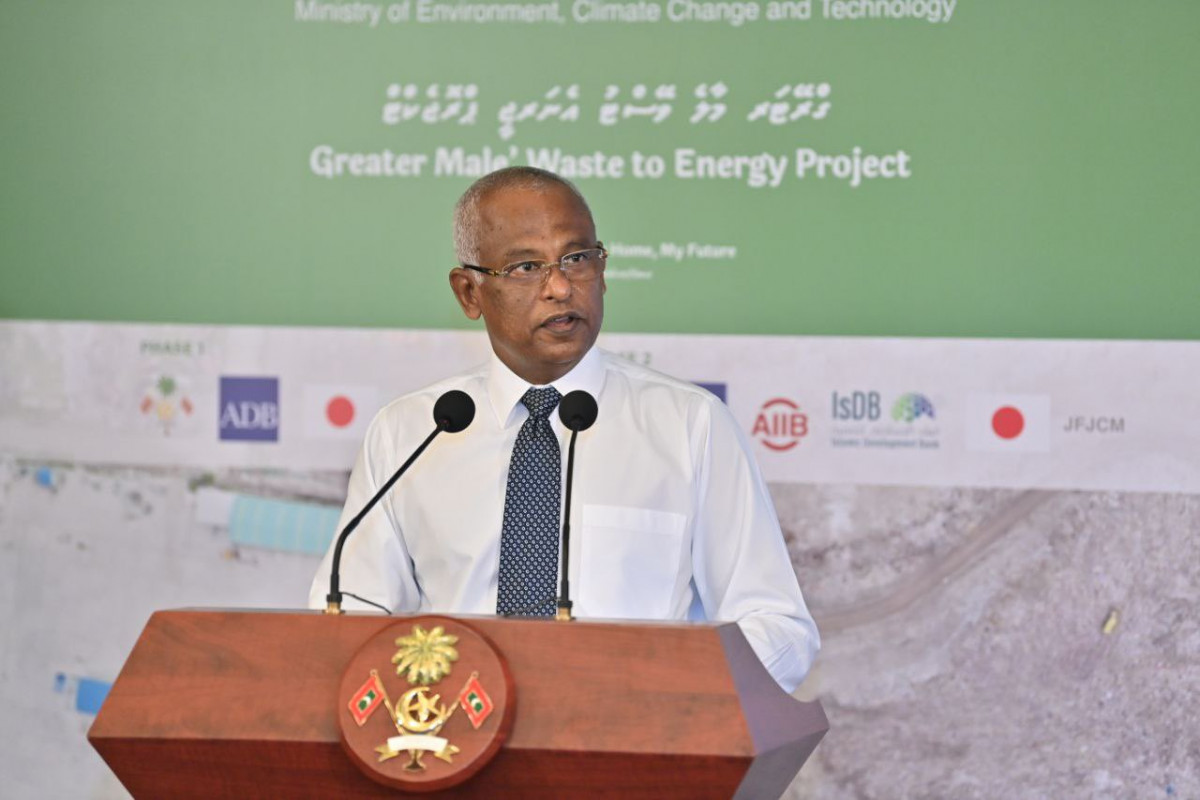He gave a speech at the ceremony to launch the Greater Malé Waste to Energy Project


He gave a speech at the ceremony to launch the Greater Malé Waste to Energy Project
Reducing hazardous waste is vital to the protection of the environment, says President Ibrahim Mohamed Solih.
Taking the podium at the ceremony to launch the Greater Malé Waste to Energy Project at Hotel Jen on Wednesday, the president noted that his administration’s environment protection policy does not avert proper waste management, however, he noted that it is inclusive enough to cover the reduction of hazardous waste.
The president shed light on the challenges facing Maldives in proper waste management, stating that the archipelago nation is remote, the scatter of islands are dispersed over a wide geographical area which adds unique challenges to the safe transportation of waste.
With this being said, Solih noted that innovative and ambitious projects such as the Greater Malé Waste to Energy Project are required to solve such problems.
He went on to highlight the unsustainable way waste collection, transfer, and disposal at the regional waste management facility on Thilafushi Island had been handled in the past.
As such, the smoke produced at Thilafushi which caused server air pollution and paved path for challenges for residents of Villimalé, had come to a halt since September this year.
The president went on to state that significant improvements have been made to how waste in the Greater Malé Region and other areas are collected, transferred and disposed, through this project, which he said, has already started to make a difference.
Shedding light on how the project is expected to create a cleaner environment and decrease greenhouse gas emissions, the president stated that economic and infrastructure development activities increase the creation of waste.
He assured that his administration’s waste management policy intends to address waste disposal across the entire archipelago nation.
With this, he expressed keenness to seeing the second phase of the project in action, and for the Maldives to be placed on the map as a “global leader” in sustainable waste management.
The project, valued at USD 304 million, is one of the largest waste management initiatives in the Maldives and extends from the Greater Malé Region to the Ari and Vaavu atolls.
The administration accords high priority to the protection and preservation of the environments, one of the efforts to reduce hazardous waste being the phasing out of single-use plastics in June 2021 as well as prohibiting the import, manufacturing and marketing of some items declared as single-use plastics.
The project will be carried out with the assistance from the Asian Development Bank (ADB), Japan Fund for Poverty Reduction, Asian Infrastructure Investment Bank (AIIB), and Japan Fund for the Joint Crediting Mechanism, Technical Assistance Special Fund, and the Islamic Development Bank (IDB).